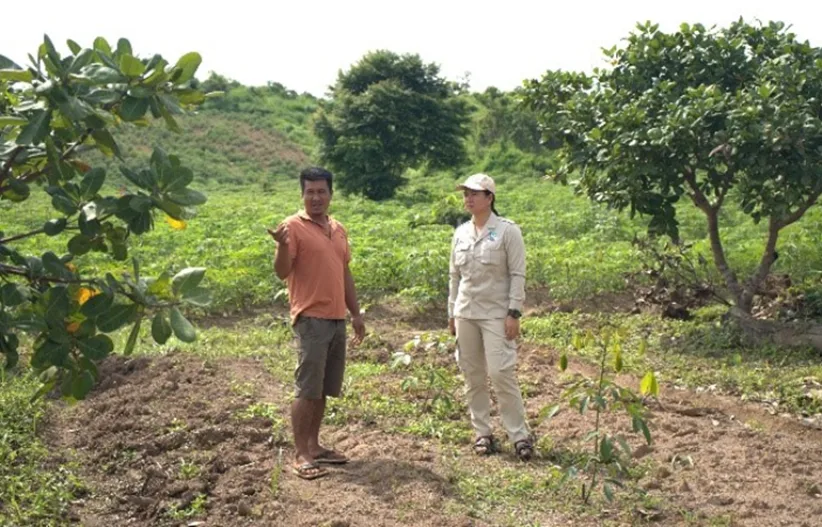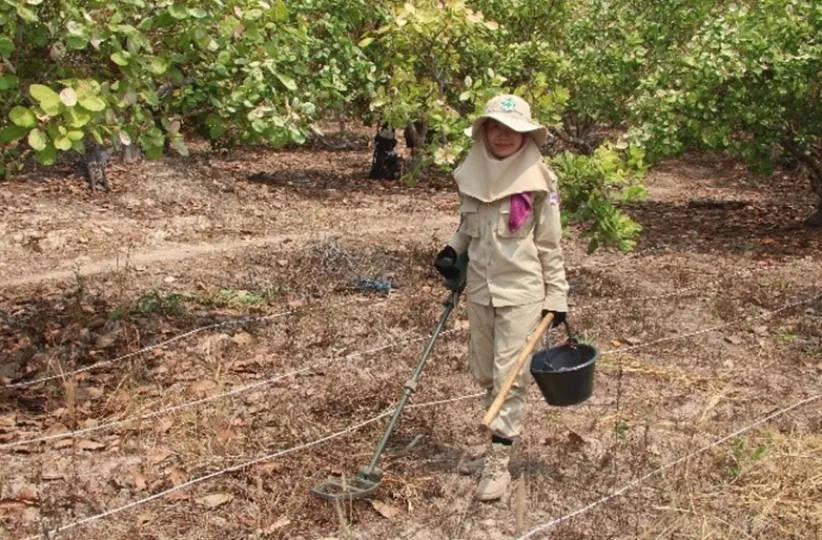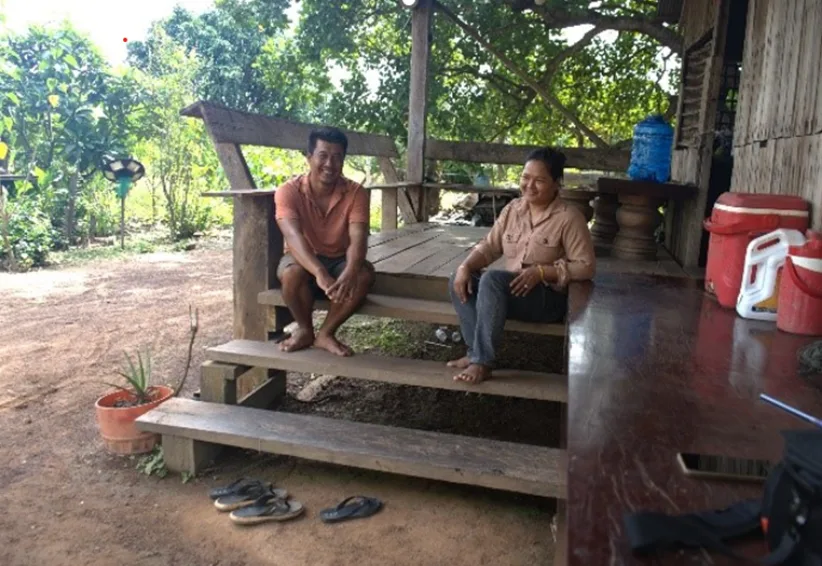Hope Restored: How Land Clearance Transformed the Farmer's Life
Chanthoeun is a 35-year-old resident of Vorng village in Cambodia. Born in this village, Chanthoeun had to relocate to another province due to his father's military obligations. However, in 2013, after marrying his wife Sopheap, he returned to his hometown with a dream of cultivating cashew trees on his land.

Chanthoeun's journey was not without challenges. During the preparation of his land, he frequently encountered explosive remnants of war, which hindered his ability to plant in certain areas. Despite the risks, he sometimes resorted to burning these remnants along with other trash, ensuring he stayed at a safe distance.
Cambodia is severely contaminated by mines, and other explosive remnants of war, especially cluster munitions that are the result of 30 years of conflicts between the 1960s and 1990s. Despite more than three decades of efforts in mine action, the country remains massively affected.

The presence of cluster munitions remnants (CMR) in areas like Vorng village has obstructed access to farmland, hindered agricultural production, and restricted access to essential resources for local livelihoods. Communities with limited or no income often have no choice but to use contaminated land, despite being aware of the associated risks.
Chanthoeun's land was no exception. He had seven hectares of land for cultivation, but nearly half of it was contaminated with CMR. This contamination severely limited his ability to fully utilize his land and earn a sufficient income4.
In 2020, Norwegian People's Aid (NPA) began surveying and clearing Chanthoeun's land. By February 2024, the NPA team had cleared the last task on his land, finding and destroying 20 cluster munitions. This allowed Chanthoeun to fully use all of his land, leading to increased productivity and more income5.

"I feel happy and satisfied that my land was totally cleared, allowing me to expand my cultivation area by 7 hectares with cassava and rubber trees. Through cashew and cassava harvesting within the last two years, I can increase my income, earning around 10 million riels (approximately 2500 US Dollars) annually," Chanthoeun shared6.
NPA's operations in Ratanakiri have brought safe land to communities and addressed their specific needs. Such initiatives contribute both directly and indirectly to safe environments, developing infrastructure, fostering education, enhancing living conditions, and encouraging socio-economic growth7.
With the financial support of the U.S. Department of State’s Office of Weapons Removal & Abatement (PM/WRA), NPA worked from October 2023 to June 2024 to release a total of 11,736,488 m2 of land containing CMR. This effort directly benefited 9,749 people and involved responding to 12 EOD call-outs from authorities and local communities.

